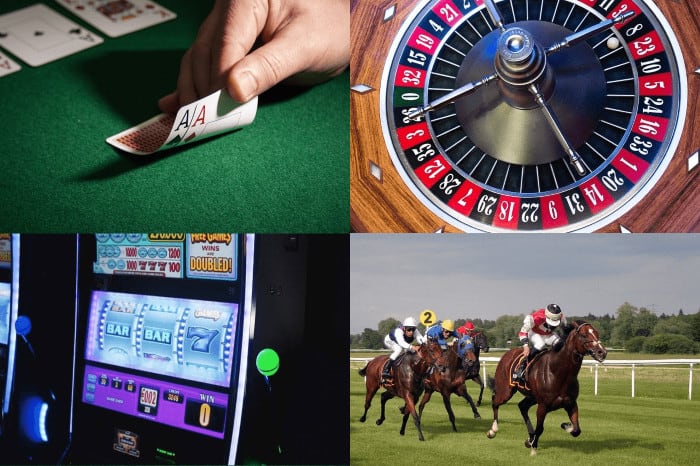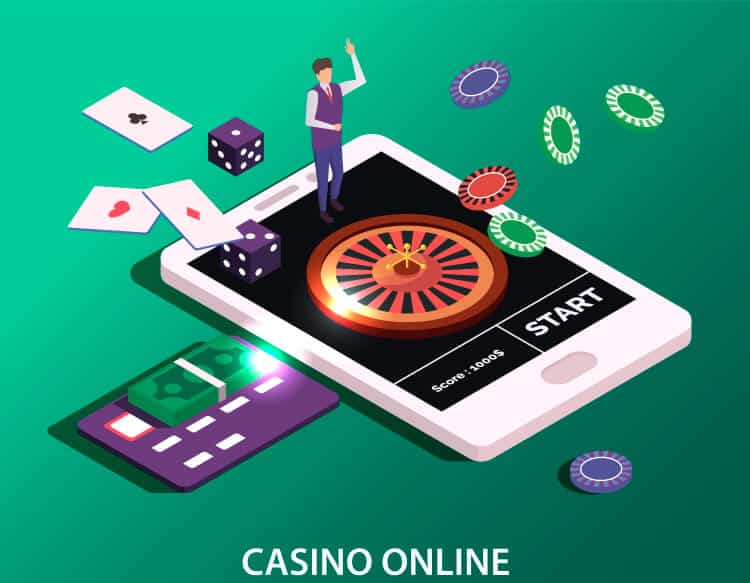
Gambling can still be advertised and promoted

I was watching ITV on television last night and the first advert break showed a well-known company and their amazing new gambling game being played from the ease of someone’s mobile phone. There were lots of flashing lights and colours and £ signs giving the impression that every spin was a winner and the player looked very excited.
Ironically, the very next advert that followed showed a family sitting down watching television except for the mother who was on her mobile phone. The family were also carrying out all sorts of juggling tricks that the mother was completely oblivious to being totally unaware of her surroundings. The camera zoomed in to her mobile phone and you could see she had started with a winning monetary deposit but as she was playing, she actually lost all her money and the advert ended with the look of total anguish on the face of the mother.
The second advert was advertising a “be responsible” Gamblers Awareness site. I don’t know if it was by complete chance that the two adverts followed each other but it totally depicted the true nature and reality of where gambling can lead us. It’s called gambling and not winning for a reason.
Gambling can very easily slot into our daily routines
These days it is just so easy to gamble on a laptop, computer or mobile phone and it also gives us the ability to gamble not only wherever but also whenever we want to. It is so common these days to see people on their mobile phones and the chances are that a high percentage will be playing some form of game that involves the element of gambling with money. There has been a very rapid increase in the ability to gamble in this way. It was not that long ago that if you wanted to participate in any form of gambling then you would physically have to go to a casino or a high street betting shop. This dramatic online choice of betting has led directly to a sharp increase in those developing an addiction to gambling.
There is relatively little legislation and regulation of the gambling market
Unlike with alcohol and tobacco, there is little legislation and little regulation of advertising and sponsorship related to gambling. There is encouragement to gamble in all forms of media from TV to magazines and radio, social media sites, and now even companies promoting gambling are sponsoring premier league football clubs. All these forms of advertising will be seen by people under the age of 18 even though they will be purporting to be targeting the age group of both male and female, between 18 and 40.
It has been proven that the most effective form of advertising is a gambling company advertising on the TV promoting free bets and free multi spins with the veiled promise of daily big pay outs. These are the ones most likely to encourage a person to go on to their website, join up and then spend. In some cases you can try out a game without using real money and then sign up to play properly. Suddenly when the game becomes ”real” with real money, you stop winning and start losing.
Gambling addiction is not always obvious
Unlike a drug habit or alcohol addiction it is very difficult to spot someone with a gambling addiction. It is not like someone that you can see drinking a lot and can then challenge them, everyone is on their mobile phones these days and unless you can actually see their screen it is near impossible to see what they are doing. Usually, an indicator would be a constant downward change in someone’s mood where they start to become more depressed and withdrawn. Certainly, a person with a gambling problem will spend more money on gambling than they can afford. They will use gambling to deal with problems or difficult feelings. They will lie to family and friends as to why they are always short of money or borrowing money. They will steal to fund the gambling addiction.
Why do people get addicted to gambling?
The act of gambling releases dopamine in the brain, the feel-good neurotransmitter that makes you feel excited when you win – but the body produces the same neurological response if you lose. Over a period of time, and that is different for everyone, our brain gets used to the increased level of dopamine and we need to gamble more and more to get the same level of pleasure. Win or lose and the odds are never in a gamblers favour.
At The Haynes Clinic we are often told that from that initial interest in gambling, from seeing a marketing incentive “to give it a go” it does not take that long for some of us to find that there is a gambling problem. However, like all addictions we can kid ourselves that “we are in control” and are able to stop whenever we want to.
The initial rush of adrenaline to win money, or taking part stops us thinking about our daily worries or stress. What happens though is that the actions and behaviour of our gambling creates other areas of stress and worry as our losses mount which adds to the stress and worry we originally had in our life. By our actions we start to make our problems worse than they were thus creating a downward spiral of depressive moods and feelings.
The danger at this point is the belief that we are still more likely to win than statically it would be possible to do. There is the element of starting to chase our losses and trying to win back those losses by actually betting even more. This creates an inevitable financial crisis. At this point someone will often choose to seek help when they are struggling with debt and finally can’t see a way out. In some cases, it can come as a complete surprise to our partners and family members and the shock and realisation that they could be facing financial ruin can be devastating. Many gamblers can be taken to such a low ebb that they take their own lives.
Gambling addiction can be helped so that the individual stops gambling
Therefore, if someone you know and love has a gambling habit, hang on to the fact that they are still around to deal with the consequences of their actions. They can be helped to kick the habit and while there is life there is hope.
